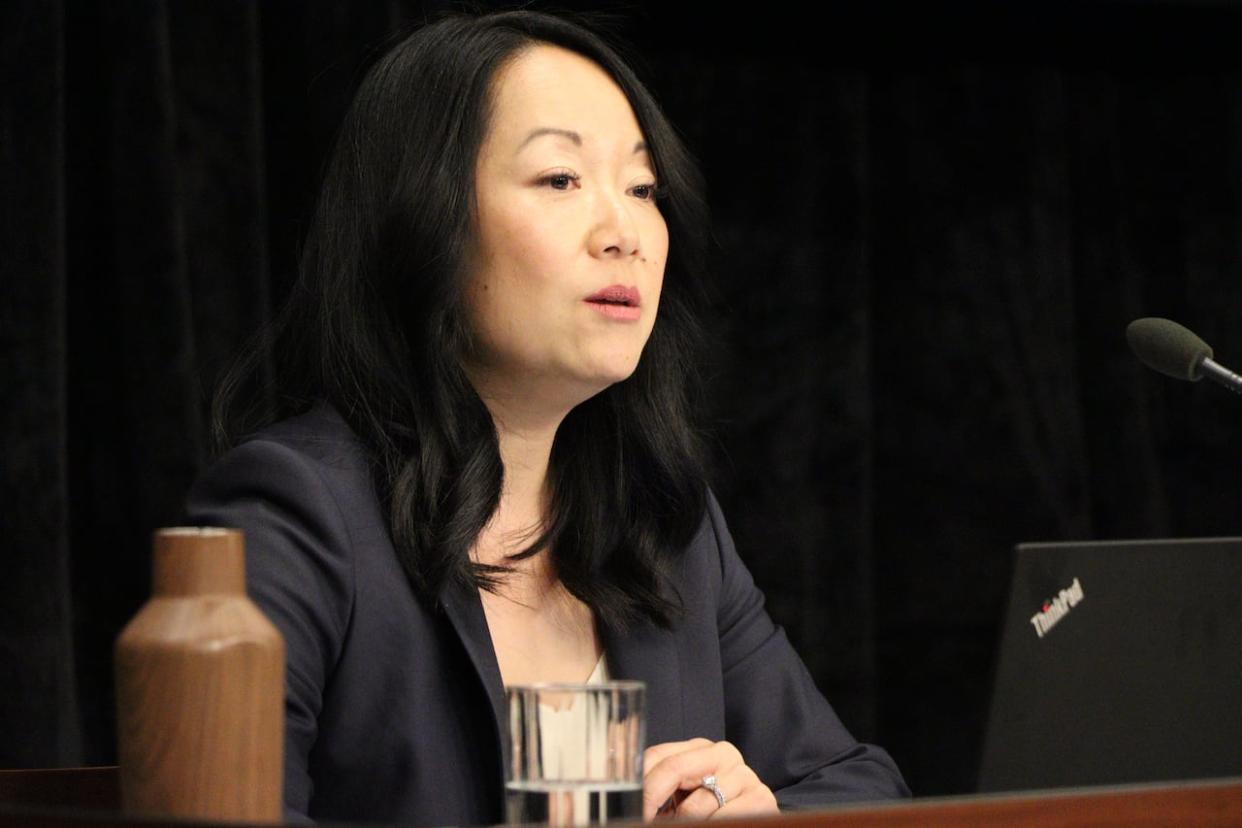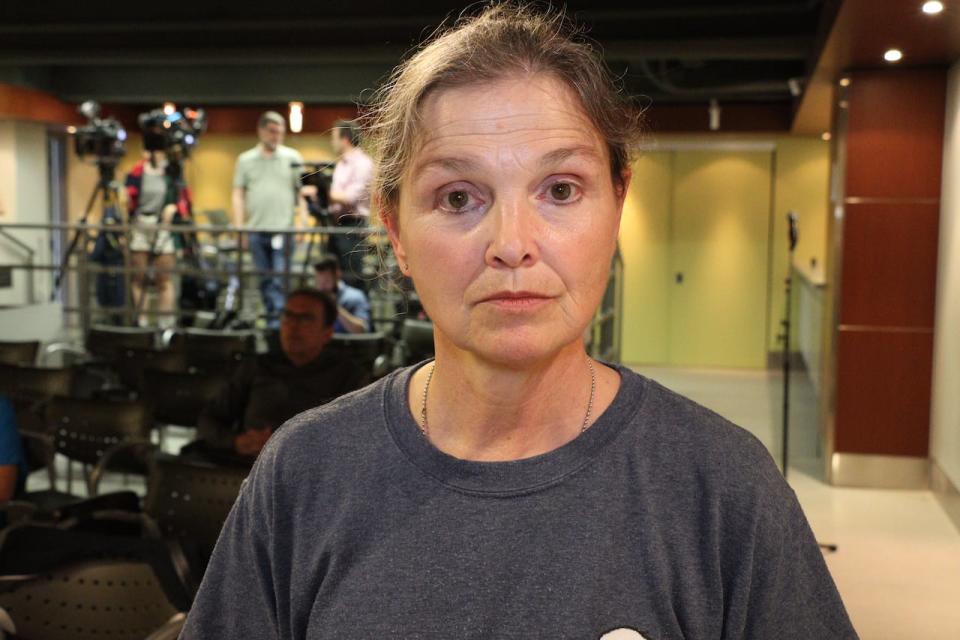Coroner wraps up public inquiry with 63 recommendations to prevent suicides in Quebec

WARNING: This story contains distressing details.
Josée Bilodeau lost her sister in 2019. That year, Suzie Aubé took her own life, and Bilodeau feels her family was kept at a distance from her sister during her hospitalization.
She said she felt shut out.
"It would have been important for us, and for them — the doctors — to hear us with all the information we had and we were able to provide to them, in order to make a better plan," she said.
After Aubé's death, Bilodeau testified as part of a public inquiry ordered three years ago.
The coroner was charged with looking into five cases of suicide — and one related homicide — that took place between 2017 and 2019.
Today, the coroner's office unveiled a list of 63 recommendations to prevent suicide, all calling for Quebec to raise its standard of care and understanding of suicide and substance abuse.
One of those recommendations is to better include families like Bilodeau's into the care-giving process when their loved ones are at-risk.
In the report, coroner Julie-Kim Godin points out that public inquiry has "reinforced the need for upstream action."

Josée Bilodeau, whose sister took her own life in 2019, says her family was shut out when her sister was hospitalized. (Matt D'Amours)
Great importance must be attached to "early detection of mental health disorders" and disorders "related to substance use" to prevent problems from escalating, the report says.
The report stresses all people who are likely to become at risk of suicide need to taken seriously.
"Let's make sure that mental health is not the poor relation in the health-care system, and that the necessary investments are made to achieve this and respond to the shortage of manpower," said the coroner.
More funding, more followups, more services
The recommendations are addressed to government ministries, police forces, healthcare institutions, community organizations, professional orders and Quebec's police academy.
The common theme: more resources, more followups, more services.
In her 63 recommendations, Godin recommends the Rucher treatment centre, which discharged Mikhaël Ryan — one of the five cases analyzed by the coroner — improve the way it identifies people at risk of committing suicide and homicide.
Ryan killed his mother, Joceline Lamothe — the homicide that was studied — before taking his own life.
In another recommendation, Godin calls on the ministries of Public Security, Health and Justice to create an advisory committee to review the legal framework surrounding the sharing of confidential or privileged information.
The coroner targets regional health boards in several regions, recommending followups with people once they are discharged from hospitals, and asks police departments to conduct thorough event reports following interventions.
The Quebec Order of Pharmacists and the Quebec College of Physicians need to monitor the conduct of their members following prescription of certain drugs, according to the coroner.
Many of the coroner's recommendations are directed at Quebec's Ministry of Health and Social Services (MSSS).
In the report, Godin asks that the ministry set up more mental health and addictions clinics, deploy interdisciplinary front-line teams across the province to improve care and conduct followups, and make psychiatric and addiction professional services more available.
The report asks the ministry to implement a provincewide strategy for suicide prevention as well as an mechanism to audit suicides and catch possible shortcomings in services.
In response, the MSSS told CBC it tabled provincial strategies on both suicide prevention and substance abuse while the inquest was underway. The government's plans "recognize the need to decompartmentalize mental health and dependency issues and adopt a holistic approach to the individual," it said in a statement.
System in 'terrible shape'
"The mental health system is in terrible shape," said Martin Enault, chairman of the board at Relief — an organization that provides services to people experiencing anxiety, depression and bipolar disorder.
Enault said suicide can be a last resort for some people suffering from depression, and much more needs to be done in prevention and education before a person's distress reaches that stage.
All of these ideas could have — and should have — been implemented years ago, Enault said, and Quebecers have suffered due to long waiting lists and difficulty accessing care.
He said he hopes the report will "trigger a complete reinvention of the way we look at mental illness and mental health in Quebec."
If you or someone you know is struggling, here's where to get help:


